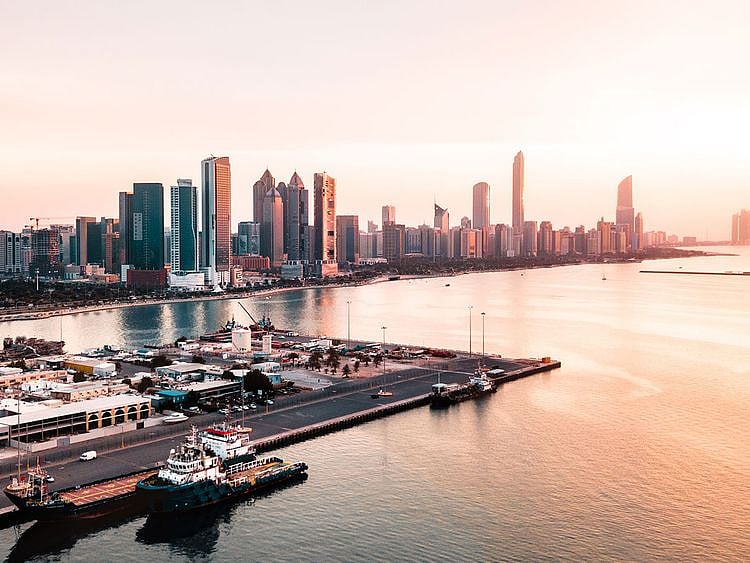Anwar Gargash Diplomatic Academy hosted the first UAE — Sub-Saharan Africa (SSA) Think Tanks Dialogue this week, a two-day event that gathered experts, scholars and policymakers from over ten countries in SSA to discuss cooperation strategies in several sectors.
The main takeaway from this productive meeting was clear: in an ever-evolving global landscape, the UAE continues to carve out a distinctive path, showcasing the power of strategic partnerships with key countries, many of which are located on the African continent.
Economic partnerships have shaped the UAE’s journey from its earliest days, a journey that finds renewed clarity in the ‘Principles of the 50,’ launched in 2021. These partnerships highlight that prioritising economic interests in our foreign policy and committing to diversification are not just strategic choices — they are foundational commitments that will guide the UAE’s growth for the next fifty years.
Economic diversification also means expanding the UAE’s connections, partnerships, and investments beyond so-called traditional markets, and using a pragmatic foreign policy to pave the way for such engagements.
A Growing Portfolio of Investments
The UAE recognises the great potential that Africa presents. With a young and dynamic population that is projected to nearly double from 1.4 billion to 2.5 billion by 2050, vast resources, emerging markets and economic priorities that align with those of the UAE, Africa is a gateway to many of the UAE’s projects through its dynamic economic agenda.
The International Monetary Fund estimates sub-Saharan Africa’s economic growth rate to reach 3.7% in 2024 and 4.2% in 2025, eclipsing most other regions of the world.
The UAE’s engagement with Africa is fundamentally rooted in economic and commercial interests. Owing to the strategic vision of its wise leadership, the UAE has become a significant source of foreign investment in Africa, ranking fourth after the United States, China, and the European Union. According to the World Economic Forum, the UAE’s investments on the continent have grown notably, with a cumulative investment of approximately $59.4 billion.
This growing partnership highlights the UAE’s commitment to fostering mutual economic growth and sustainable development across the African continent, reinforcing its strategic foresight and leadership in global investment initiatives.
The UAE’s ambitious investments in Africa target a wide range of sectors including ports, infrastructure, renewable energy, agriculture and food security, telecoms, manufacturing, construction, information technology and real estate. In early 2024, the country concluded negotiations for Comprehensive Economic Partnership Agreements (CEPAs) with Kenya, Mauritius, and the Republic of Congo, and there are more on the horizon.
The UAE’s partnerships in Africa have substantially extended its footprint: 14 ports are now operated or under construction by DP World and Abu Dhabi Ports, Etisalat (e&), the UAE’s leading telecom provider, operates in over 12 African countries and Masdar has invested heavily in renewable energy projects in South Africa, Mauritania, and Senegal.
The UAE has also invested in a range of agricultural projects to shore up food security needs. In March 2024, Mubadala, one of the UAE’s leading sovereign wealth funds, announced a joint investment with France’s BpiFrance to strengthen technology start-ups in Africa.
The UAE: A Reliable Partner
African countries view the UAE as a reliable partner committed to mutual prosperity. As states across the continent prioritise their economic growth, enhance their connectivity with each other and focus on securing markets for their exports, the UAE’s investments in infrastructure (ports, railway and road networks, dry ports and telecoms etc) are crucial to boosting intra-African trade and the continent’s digital future.
The UAE is also an important financial Centre for African companies which are increasingly opting to base their trading and financial operations here. The Dubai Chamber of Commerce estimates that the number of registered African companies reached 26,400 in 2022, showcasing the attractiveness of the UAE to a growing number of organisations. These business links, investment projects and economic synergies will bring greater wealth and prosperity to all those involved.
Since its founding in 1971, the UAE has been an outward-looking country that understands the importance of trade and connectivity. It has always leveraged its strategic location and proximity to important regions of the world to stimulate and sustain robust economic relations with its neighbours and Africa is no exception. With its dynamic markets and vast opportunities, SSA is integral to the UAE’s growth-oriented vision.
Yet, economic transactions can only go so far. The UAE also recognises that long-term partnerships are built on trust, mutual respect and continuous dialogue. Gatherings like the one held at the Academy last week encapsulate the UAE’s belief that a successful foreign policy rests on cooperation and inclusion.
As the UAE looks to the future, its path remains clear: embracing new opportunities, developing sustainable growth and building lasting partnerships are key. Africa is not just a destination for investment, nor is it a continent where the extractivist and harmful economic practices of the past will continue.
Today, Africa is a partner in the UAE’s shared journey towards prosperity.
Dr Mohammed Ibrahim Al Dhaheri is the Deputy Director-General of the Anwar Gargash Diplomatic Academy in Abu Dhabi
Sign up for the Daily Briefing
Get the latest news and updates straight to your inbox
Network Links
GN StoreDownload our app
© Al Nisr Publishing LLC 2026. All rights reserved.
